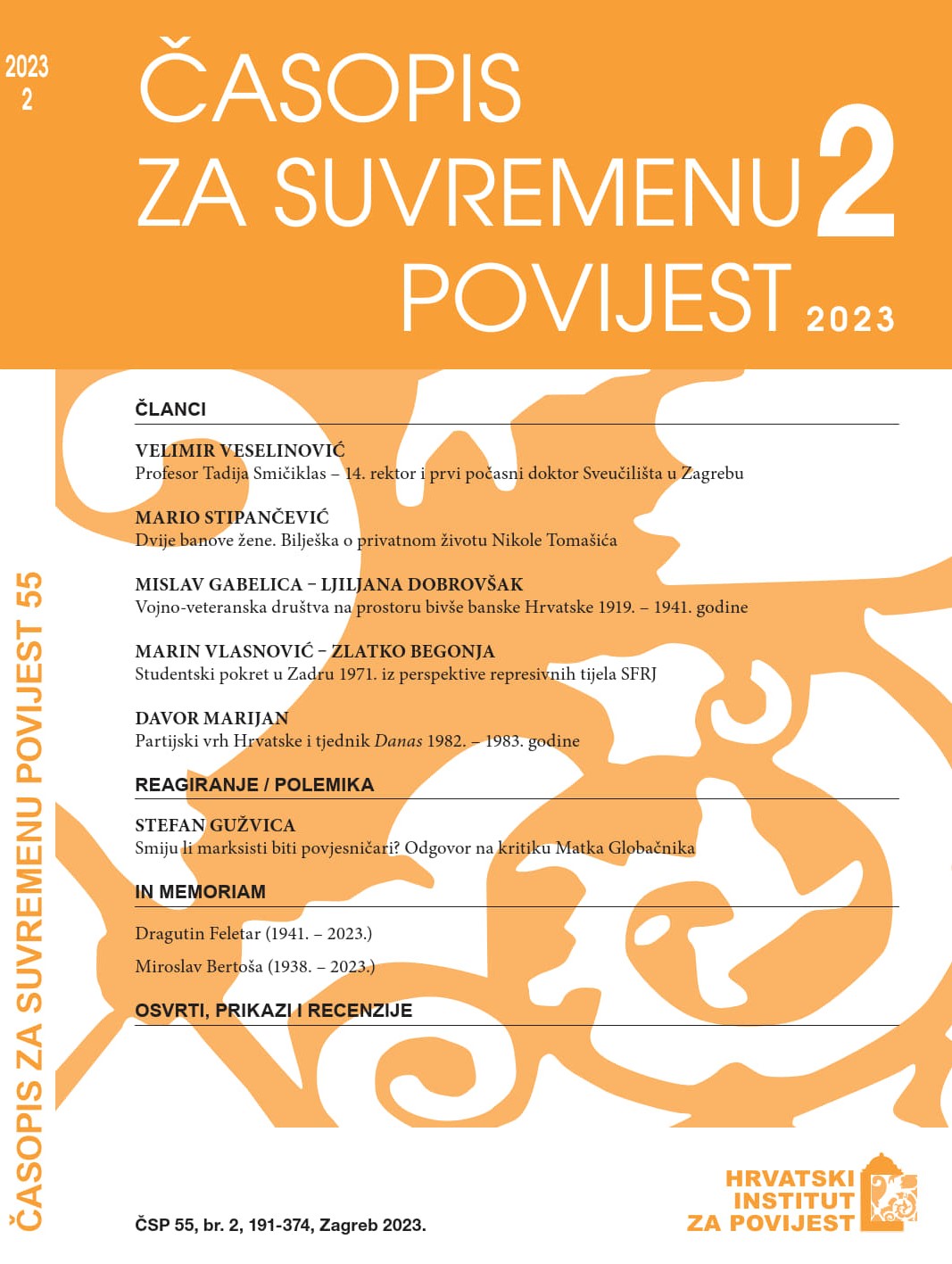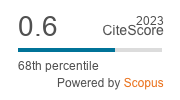Military-veteran Societies in the Territory of Former Banovina of Croatia 1919-1941
DOI:
https://doi.org/10.22586/csp.v55i2.26633Keywords:
World War I, Croatian veterans, Kingdom of SCS/Yugoslavia, cultural memoriesAbstract
This article reports on research into the activities of Croatian military-veteran societies in the interwar period (1918-1941) in an endeavour to answer the question as to why in present-day Croatia World War I is at the margins of memory, i.e. why it is a forgotten war. Emphasis is placed on the attitude of the Yugoslav government towards the Croatian military-veteran societies, which gathered together military veterans of the defeated Austro-Hungarian army, and also on the attitude of radical Croatian nationalists toward these societies. Research has shown that the Croatian military-veteran societies were chiefly of a local character, whereas Serbian military-veteran societies took in both the Serbian and the Yugoslav state territory. In further analysis, the conclusion was drawn that the cause of the restricted nature of the Croatian military-veteran societies was Croats at the time not having a nation state that was based on the sacrifice of its sons, and so such societies in Croatia had an exclusively humanitarian character; it was not aimed at reviving the glorious Croatian war record in order to unify the Croatian people. Yugoslavia was primarily a state of Serbs, and it drew on the sacrifices of the war, but only those of Serbian soldiers, and any kind of gathering of the Croats and cherishing of the memory of the defeated Austro-Hungarian army was interpreted as an attack on the foundation of the state. This was why the Croatian military-veteran societies in Yugoslavia between the two wars, which had the potential to outgrow their local character, were either banned or forcibly merged with the dominant Serbian societies. At the same time, radical Croatian nationalists were not particularly interested in such societies. Their programme was not based on any going back to the pre-Yugoslav state, but rather on the establishment of an independent Croatian state; hence, they did not consider World War I, when Croats were fighting for and in favour of the Austro-Hungarian Monarchy, a significant part of their fight.
Downloads
Published
How to Cite
Issue
Section
License
Copyright (c) 2023 authors and journal

This work is licensed under a Creative Commons Attribution-NonCommercial 4.0 International License.
Copyright holders are the publisher Croatian Institute of History and the authors. Journal of Contemporary History is an Open Access journal. Users are allowed to read, download, copy, redistribute, print, search and link to material, and alter, transform, or build upon the material, or use them for any other lawful purpose as long as they attribute the source in an appropriate manner according to the Creative Commons licence CC BY-NC. The papers published in Journal of Contemporary History can be deposited and self-archived in the institutional and thematic repositories providing the link to the journal's web pages and HRČAK. Journal does not charge article processing charges (APC). The editors assume no responsibility for statements of fact or opinion made by contributors.




